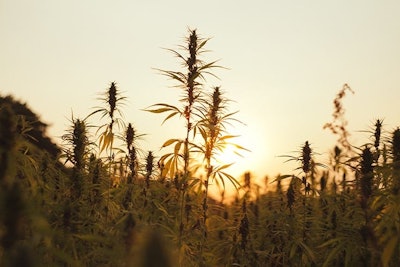
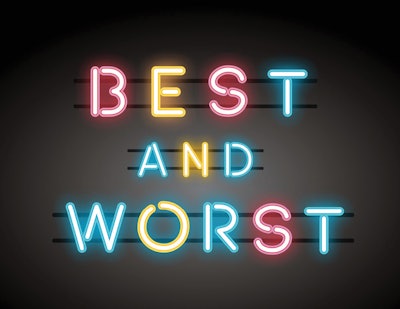
Times obviously have changed. Drive along rural roads in many states around the country and witness acres upon acres of hemp fields.
Farmers grow hemp for manufacturers seeking cannabidiol (CBD), cannabinol (CBN) and cannabigerol (CBG) for their oils, lotions and foods and beverages. They farm hemp for textiles, food, insulation and pet bedding. To date, researchers have identified more than 25,000 uses for hemp, according to various sources.
But farmers in every state do not benefit equally from hemp, and the reasons for the disparities revolve around more than climate and soil.
One trait that all hemp farmers share, a trait that sets hemp cultivators apart from traditional farmers, is a heightened awareness of the law. The obvious reason is that the law plays a big role in all hemp cultivators’ lives. The non-obvious aspect? Legal considerations do not impact all hemp farmers equally. Some states welcome hemp with enthusiasm, many allow it with a shrug and other states continue to ban it altogether.
As lawyers with hemp and cannabis practices, we routinely research evolving hemp laws in states across the country. Understanding the legal advantages and pitfalls is vital for everyone growing or thinking about growing hemp. To help give you a head start on understanding the national market, we’ve put together a list of the best—and worst—states for hemp cultivation:
Three Best States for Hemp Cultivation
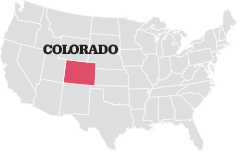
Colorado
The Rocky Mountain state enjoys an established, long running hemp program with clear and reliable rules.
The state’s advantages go beyond the straightforward rules. Among other things, the Colorado Department of Agriculture (CDA), which runs the industrial hemp program, is incredibly pro-industry and works closely with hemp farmers to get them up and running.
The 5-year-old program is spearheaded by a range of administrators who understand every corner of hemp agriculture, from laws to cultivation methods to harvesting techniques.
Colorado’s industry has grown exponentially. In 2014, hemp occupied just 1,811 acres across the state. As of October 2019, that number reached 87,008 acres. Meanwhile, the number of license holders vaulted from 131 in 2014 to 1,939 in 2019. In 2019, 60 of Colorado’s 64 counties had at least one registered hemp operation.
Hemp clearly thrives as a result of Colorado’s landscape, soil, elevation and climate. Many veteran Cannabis sativa L. cultivators describe Delta County in western Colorado as one of the finest, if not the best, areas for hemp cultivation in the world.
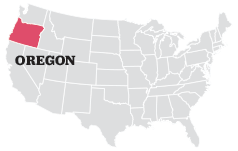
Oregon
Oregon farmers, like those in Colorado, benefit from a business-friendly Department of Agriculture. In fact, Oregonians grow more hemp than any other state. Farmers planted more than 46,219 acres as of May 2019, up from 7,808 acres in 2018—an increase of more than 500%. And earlier this year, Oregon State University announced the launch of the Global Hemp Innovation Center, the largest hemp research organization in the U.S. “with 40 faculty across 19 disciplines conducting research in 10 locations across the state and four locations around the world in Asia and Europe,” according to the organization’s website.
Oregon is one of the few states that permits the sale of all hemp products. Some states, like neighboring California, do not allow the manufacture of hemp-related products that people ingest, such as supplements, tinctures and candy, which can hamstring farmers who grow hemp for cannabinoids, such as CBD.
The Oregon Department of Agriculture is widely praised for its regulatory and farming savvy and works to ensure that hemp farmers understand the rules and best practices for hemp cultivation and harvesting.
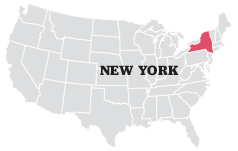
New York
Colorado and Oregon clearly belong at the top of the “best of” list. Other states, even those considered hemp friendly, pale when compared to those bright stars.
But among the many other hemp-friendly states, New York stands slightly apart. The regulatory structure is clear, the application forms are straightforward and the application fee is minimal ($500).
New York hemp farmers also have certain advantages. While hemp farmers are allowed to sell their products anywhere, manufacturers of cannabinoid products derived from hemp—tinctures, topicals, pills, beverages and the like—are prohibited from using hemp that is not grown in New York. This gives New York hemp growers an enormous leg up over farmers in other states. With a state population of nearly 20 million people—nearly tied with Florida for third most populous state—that is an enormous, and captive, marketplace for New York hemp farmers.
But New York’s hemp industry benefits from more than that.
The state launched its Industrial Hemp Agricultural Research Pilot Program in 2015, which allows educational institutions to grow and research industrial hemp. Cornell University, one of the premier agricultural universities in the country, is now researching hemp and offering seed to farmers. The state also dedicated $10 million in grant money to hemp research and economic development.
With 3,500 acres cultivated in 2018, New York is far behind Oregon and Colorado in terms of volume.
However, it is now welcoming hemp in struggling areas across the state.
Three Worst States for Hemp Cultivation
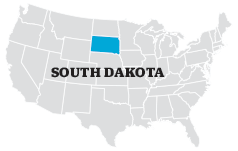
South Dakota
The borders are separated by only 125 miles, but the differences between Colorado and South Dakota are worlds apart.
In South Dakota, all forms of hemp are illegal. The state’s attorney general concluded that the 2018 Farm Bill did not, in fact, alter the plant’s legal status.
It would be foolish to cultivate hemp in South Dakota despite hemp’s legal status nationwide. Even though the 2018 Farm Bill mandates that states are not allowed to prohibit the transportation of hemp across their borders, we advise our clients to avoid even shipping hemp across South Dakota. If police stop the vehicle and find hemp, enormous headaches are likely to result. The product will be impounded. Legal fees will mount as the hemp farmers contend with authorities. Regaining the shipment could take months. It is likely that, in the end, the shipment would be returned. But by the time that happens, the biomass could be worthless due to spoilage.
South Dakota’s slogan is “great faces, great places.” That may be true for many things, but it certainly is not a great place for hemp.
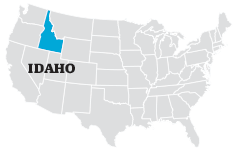
Idaho
Hemp is legal in Idaho, but that legality comes with an absurd stipulation: All hemp must contain 0% tetrahydrocannabinol (THC), the primary intoxicating cannabinoid in cannabis. We are not aware of any hemp cultivar that contains 0% THC.
Federal legislation mandates that in order to be legal, hemp must contain no more than 0.3% THC on a dry weight basis. That is infinitesimal. If it were possible to smoke a garbage bag full of hemp, it wouldn’t get you high.
So as with South Dakota, a truck full of hemp that gets pulled over by police may be mistaken for marijuana, confiscated and/or likely subject to a lengthy investigation. This is what Big Sky Scientific is arguing occurred in its lawsuit (Big Sky Scientific LLC, v. Idaho State Police, et al.) against Idaho State Police and related parties after police seized 7,000 pounds of what Big Sky says was hemp.
Unfortunately, as of now, most states have not yet invested in equipment that can accurately and reliably determine whether a sample of Cannabis sativa L. is hemp or what is now often referred to as marijuana because, again, hemp and marijuana are the same plant, and the difference between the two is an arbitrary—and very tiny—quantity of THC. As a result—and presumably after much legal wrangling—the hemp could get sent to a state that possesses the proper testing technology.
Due to the legal issues involved and the time and expense of conducting such testing, it is more than likely that the hemp will degrade and become worthless before it is proven not to be marijuana.
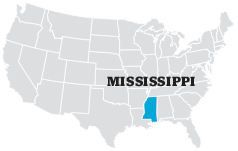
Mississippi
As we know, a few states are superb for hemp farming, two are currently atrocious and the rest fall somewhere in the middle. In other words, many states are not threatening, but they’re not supportive either.
But at least one state, Mississippi, falls into “bad” territory due to its utter lack of a regulatory framework for hemp. To date, it has shown little progress in enacting such legislation and offers no legal avenue to grow or sell the crop.
Can you grow hemp with impunity? Who knows! Will authorities confiscate a crop? Arrest growers? Impose fines? All of the above are possible in The Magnolia State.
The only progress the state has made in regard to hemp is the creation earlier this year of the Mississippi Hemp Cultivation Task Force. Its mandate: to “consider the potential of hemp cultivation, market potential and potential job creation in Mississippi.”
This is definitely a step in the right direction, but it’s a very small step.
Sensible, fair regulatory frameworks, like those in Colorado and Oregon, help nurture, strengthen and grow the hemp business. An absence of rules, as in Mississippi, breeds uncertainty, corruption and risk.
Big Opportunity
Hemp has the potential to improve the lives of many Americans, including those who grow it. The difference in dollar value between an acre of corn and an acre of hemp is astronomical. The difference in sustainability between an acre of hemp and an acre of trees grown for paper is incredible.
Hemp will be a key crop in any realistic drive for environmental sustainability in this country. Farmers who take to hemp early, however, must carefully assess the legal implications of growing, selling and even transporting hemp across other states.
















